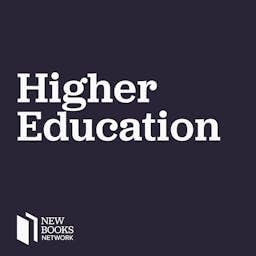We’re all familiar with the sentiment that “college is the best time of your life.” Along with a newfound sense of freedom, students have a unique opportunity to forge lifelong friendships at a point in life when friendship is particularly important. Why is it, then, that so many college students are falling victim to what the US Surgeon General termed an “epidemic of loneliness and isolation”? How do different aspects of college life help or hinder students’ ability to form deep connections?In Making, Keeping, and Losing Friends: How Campuses Shape College Students’ Networks (U Chicago Press, 2025), sociologist Janice M. McCabe shows that the way a college is structured—whether students live in dorms or commute, study abroad or stay close to campus, have plentiful common areas for clubs to meet or not—can either encourage or hinder the making of meaningful friendships. Based on interviews with 95 students on three distinct campuses—a small private college (Dartmouth College), a large public university (University of New Hampshire), and a non-residential community college (Manchester Community College)—McCabe captures a wide range of experiences and discovers how features of the campuses make it easier or harder for students to make and keep friends. She shows how and why, across all three institutions, some students thrive in deep and lasting friendships with their peers.As McCabe’s research reveals, we need to look at the structures of students’ networks, the institutions they attend, and the importance of their identities in these places if we are to truly uncover and address the loneliness epidemic facing today’s young adults. Michael O. Johnston, Ph.D. is an Associate Professor of Sociology at William Penn University, where he specializes in the cultural and interpretive study of space, behavior, and identity. His scholarship examines how designed environments shape social interaction, connectedness, and moral life across diverse settings. He is the author of The Social Construction of a Cultural Spectacle: Floatzilla (Lexington Books, 2023) and Community Media Representations of Place and Identity at Tug Fest: Reconstructing the Mississippi River (Lexington Books, 2022). His current research projects include ethnographic studies of escape rooms as emotion-structured environments, the use of urban aesthetics in rural downtown districts, and the lived experience of belongingness among college and university students. To learn more about his work, visit his personal website, Google Scholar profile, or connect with him on Bluesky (@professorjohnst.bsky.social) or Twitter/X (@ProfessorJohnst). He can also be reached directly by email. Learn more about your ad choices. Visit megaphone.fm/adchoices
Voir plus
Voir moins
 Dec 12 20251 h et 4 min
Dec 12 20251 h et 4 min 1 h et 10 min
1 h et 10 min 1 h et 6 min
1 h et 6 min 40 min
40 min 52 min
52 min 47 min
47 min 1 h et 6 min
1 h et 6 min 1 h et 3 min
1 h et 3 min
